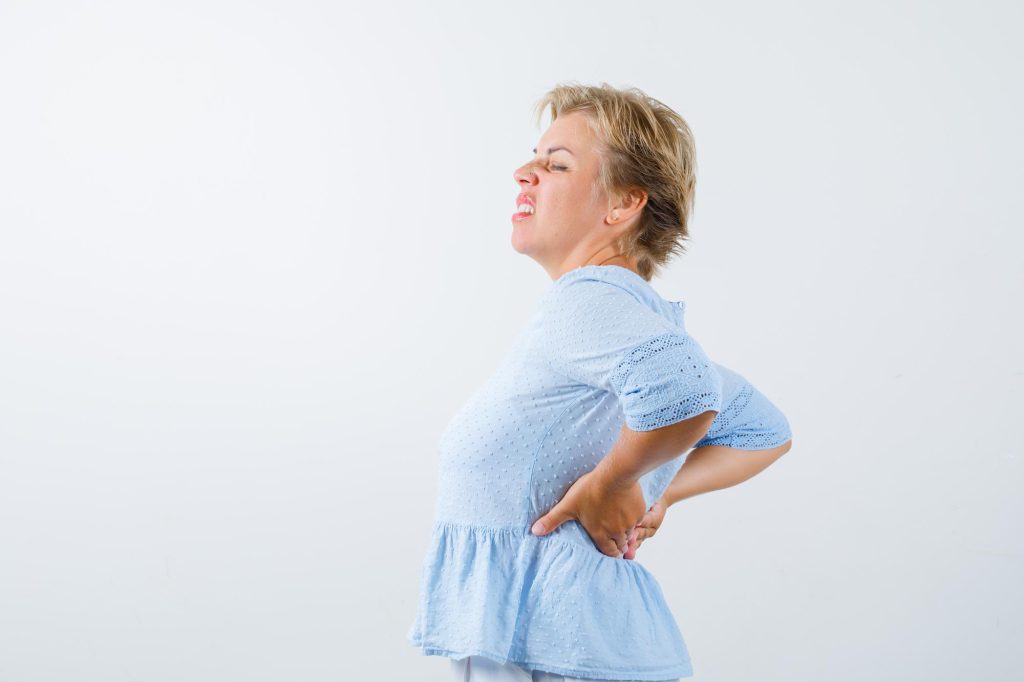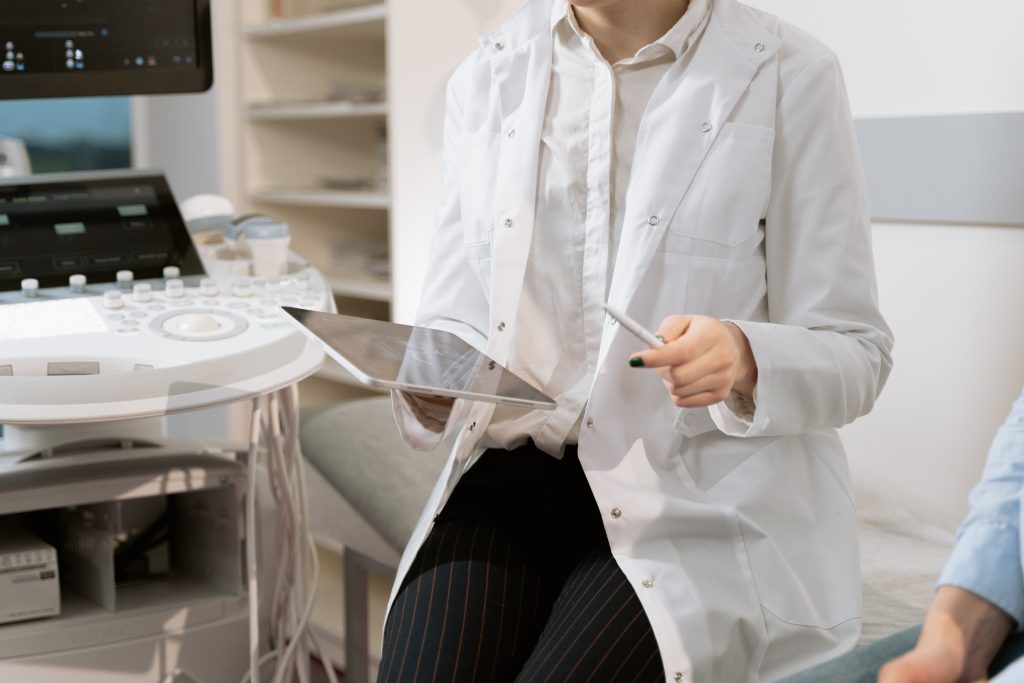Discover the potential impact of subsequent pregnancies on postpartum back pain duration.
Can Subsequent Pregnancies Affect Postpartum Back Pain Duration?
Are you a mama-to-be, wondering what lies ahead after giving birth? Well, let’s dive into the fascinating world of postpartum back pain and how subsequent pregnancies can affect its duration. Buckle up, because we’re about to unveil it all!

Understanding Postpartum Back Pain
Ah, the joys and wonders of motherhood! Alongside midnight feedings and endless diaper changes, many women experience postpartum back pain. But what causes it, you ask?
Let’s dive deeper into the causes of postpartum back pain. During pregnancy, your body undergoes numerous changes. As your baby grows, your center of gravity shifts, placing extra strain on your lower back. The added weight and pressure can lead to discomfort and pain.
But that’s not all! The increased flexibility of your ligaments, due to hormonal changes, can also contribute to postpartum back pain. The release of relaxin, a hormone that helps prepare your body for childbirth, loosens your joints and ligaments. While this is essential for the birthing process, it can leave your back vulnerable to pain and discomfort.
Now, let’s talk about those telltale signs of postpartum back pain. It can manifest as a dull ache or sharp twinges in your lower back. Some mamas even experience radiating pain down their legs. The intensity of the pain may vary from woman to woman, but it can certainly be a source of discomfort and frustration.
But fear not, dear reader! On average, postpartum back pain tends to subside within six to eight weeks after delivery. The body gradually adjusts to its pre-pregnancy state, and the pain gradually diminishes. However, it’s important to note that every woman’s experience is unique, and some may experience longer-lasting pain or recurring episodes.
It’s also worth mentioning that subsequent pregnancies can have an impact on postpartum back pain. The strain placed on the back during each pregnancy can accumulate over time, leading to increased discomfort and a longer recovery period. Taking care of your back and seeking appropriate medical advice can help manage and alleviate the pain during subsequent pregnancies.
So, there you have it! Postpartum back pain is a common occurrence for many women, but understanding its causes and symptoms can help you navigate this temporary challenge. Remember to listen to your body, seek support from healthcare professionals, and take the necessary steps to promote healing and recovery.
The Impact of Multiple Pregnancies on the Body
Having another bun in the oven is an exciting journey, indeed! However, subsequent pregnancies can take a toll on your body and potentially influence postpartum back pain. Let’s explore why!
Physical Changes During Pregnancy
With each additional pregnancy, your body becomes a seasoned professional. Your abdominal muscles may be looser, reducing their ability to support your spine. This can exacerbate back pain after delivery.
Not to mention, your uterus might also expand more quickly in subsequent pregnancies, adding extra strain to your back. It’s like a marathon runner tackling another race without properly recovering from the previous one!
The Role of Hormones in Pregnancy and Postpartum
Ah, hormones. Those troublemakers make their presence known during pregnancy and postpartum. Hormonal changes, especially during subsequent pregnancies, can influence postpartum back pain duration.
As your body becomes more accustomed to pregnancy, hormone levels may fluctuate differently. This might affect the looseness of your joints and ligaments, potentially prolonging postpartum back pain.
But that’s not all! Hormones play a crucial role in preparing your body for childbirth. During subsequent pregnancies, your body has already gone through the process once before, so it knows what to expect. This familiarity can lead to changes in hormone levels, which can impact the duration and intensity of postpartum back pain.
Additionally, the increased demands on your body during subsequent pregnancies can also affect your hormone levels. Your body is working hard to nourish and support not only one, but multiple babies. This can result in hormonal imbalances that contribute to postpartum back pain.
Furthermore, the physical changes that occur in your body during pregnancy can also impact your hormone levels. For example, the growth of the placenta and the production of hormones such as progesterone and relaxin can affect the stability of your joints and ligaments, potentially leading to back pain after delivery.
It’s important to note that every pregnancy is unique, and the impact of multiple pregnancies on the body can vary from person to person. Factors such as genetics, overall health, and lifestyle choices can also influence the severity and duration of postpartum back pain.
In conclusion, multiple pregnancies can have a significant impact on the body, particularly when it comes to postpartum back pain. The physical changes and hormonal fluctuations that occur during subsequent pregnancies can contribute to the duration and intensity of back pain after delivery. It’s essential to take care of your body during and after pregnancy, seeking appropriate medical advice and support to manage any discomfort or pain that may arise.
Subsequent Pregnancies and Postpartum Back Pain
Now, let’s connect the dots and explore the intriguing relationship between subsequent pregnancies and postpartum back pain. Could there be a correlation? Let’s find out!
The Connection Between Multiple Pregnancies and Back Pain
While each pregnancy is a unique experience, the cumulative effect on your body cannot be overlooked. Subsequent pregnancies introduce additional strain to your already hard-working back, potentially extending postpartum back pain.
During pregnancy, your body undergoes numerous changes to accommodate the growing baby. These changes include hormonal fluctuations, weight gain, and a shift in your center of gravity. All of these factors can put stress on your back and contribute to discomfort.
But what happens when you go through multiple pregnancies? The strain on your back becomes even more pronounced. Your muscles, ligaments, and joints have already been stretched and weakened from previous pregnancies, making them more susceptible to pain and injury.
Remember those physical changes we discussed earlier? They can amplify the discomfort you feel after giving birth, making those sleepless nights even less enjoyable. The combination of hormonal changes, weakened muscles, and the demands of caring for a newborn can create a perfect storm for postpartum back pain.
Factors Influencing Back Pain Duration
Keep in mind that various factors can influence the duration of postpartum back pain after subsequent pregnancies. Your overall health, level of physical activity, and even the demands of caring for multiple children can play a role.
Women who are in good overall health and maintain an active lifestyle tend to recover from postpartum back pain more quickly. Regular exercise, especially exercises that strengthen the core and back muscles, can help alleviate pain and prevent future episodes.
On the other hand, if you have pre-existing back problems or lack physical activity, the duration of postpartum back pain may be prolonged. Additionally, the demands of caring for multiple children can put additional strain on your back, further delaying the recovery process.
It’s important to note that seeking proper care during pregnancy and postpartum is crucial. Regular prenatal check-ups, consultations with a physical therapist, and practicing good posture can all contribute to a smoother postpartum recovery.
Now, let’s explore ways to prevent and manage postpartum back pain, because we want you to rock motherhood pain-free!
Prevention and Management of Postpartum Back Pain
Preparation is key, dear mamas! Let’s dive into some strategies to prevent and manage postpartum back pain during subsequent pregnancies. Trust us, your back will thank you!
Did you know that back pain is a common complaint among postpartum women? It’s no surprise considering the physical demands of pregnancy and childbirth. But fear not, there are steps you can take to alleviate and prevent this discomfort.
Pre-pregnancy and Pregnancy Care
First things first, it’s essential to maintain good back health even before you conceive again. Engaging in regular physical activity that strengthens your core and back muscles can work wonders. Consider incorporating exercises such as pilates or low-impact aerobics into your routine.
But exercise isn’t the only factor to consider. Your posture plays a significant role in back health as well. Be mindful of your posture throughout the day, whether you’re sitting, standing, or lifting objects. Maintaining a neutral spine position can help distribute the weight evenly and reduce strain on your back.
During pregnancy, consider gentle exercises like prenatal yoga or swimming to keep your back happy and strong. These activities not only help strengthen your muscles but also improve flexibility and promote relaxation. And don’t forget to listen to your body; if something feels uncomfortable or painful, modify or stop the activity.
Postpartum Care and Pain Management
Welcome to the world of postpartum care! Gentle stretching exercises and hot or cold packs can provide relief to your hard-working back. Incorporating stretching into your daily routine can help improve flexibility and reduce muscle tension. And the application of hot or cold packs can help soothe any inflammation or soreness.
Additionally, you may find comfort in using a supportive brace or pillow while breastfeeding. These aids can help maintain proper posture and reduce strain on your back and shoulders. Remember, breastfeeding can be a beautiful bonding experience, but it’s essential to prioritize your comfort as well.
But managing postpartum back pain isn’t just about physical remedies. Self-care is vital during this time. Carve out time for relaxation, whether it’s taking a warm bath, practicing deep breathing exercises, or enjoying a cup of herbal tea. Prioritize adequate sleep, as fatigue can exacerbate pain and make it harder to cope with daily activities.
Seek support from your loved ones. Remember, you don’t have to go through this journey alone. Reach out to your partner, family, or friends for help with household chores or caring for your little one. Having a strong support system can make a world of difference in your overall well-being.
After all, a happy mama makes for a happy baby! Taking care of yourself is not selfish; it’s essential for your physical and emotional health. So, dear mamas, remember to prioritize your well-being and implement these strategies to prevent and manage postpartum back pain. Your back will thank you!
The Role of Medical Consultation
In some cases, seeking medical assistance is necessary to ensure optimal back health during subsequent pregnancies. Let’s explore when to seek professional help and the importance of regular check-ups!

When to Seek Medical Help
If your postpartum back pain becomes increasingly severe, affects your daily activities, or doesn’t improve after several weeks, it’s time to reach out to your healthcare provider. They can assess your condition and provide personalized recommendations.
Additionally, if you experience any new or concerning symptoms, such as numbness, tingling, or weakness in your legs, medical consultation is essential. Your health and well-being matter, mama!
The Importance of Regular Check-ups in Subsequent Pregnancies
Regular check-ups during subsequent pregnancies are not only about monitoring the growth and well-being of your little one, but they also allow healthcare professionals to address any underlying concerns that may contribute to postpartum back pain.
Your doctor can provide valuable insights, guidance, and tailored recommendations to support your back health throughout your journey. Remember, knowledge is power!
And there you have it, dear mamas! The scoop on how subsequent pregnancies can affect postpartum back pain duration. While the journey may not always be a pain-free one, you now have the knowledge to navigate it like a pro.
Remember, your body is incredible. Embrace the changes, take care of yourself, and don’t hesitate to seek support when needed. Motherhood is a whirlwind adventure, and you’re rocking it one backache at a time!



